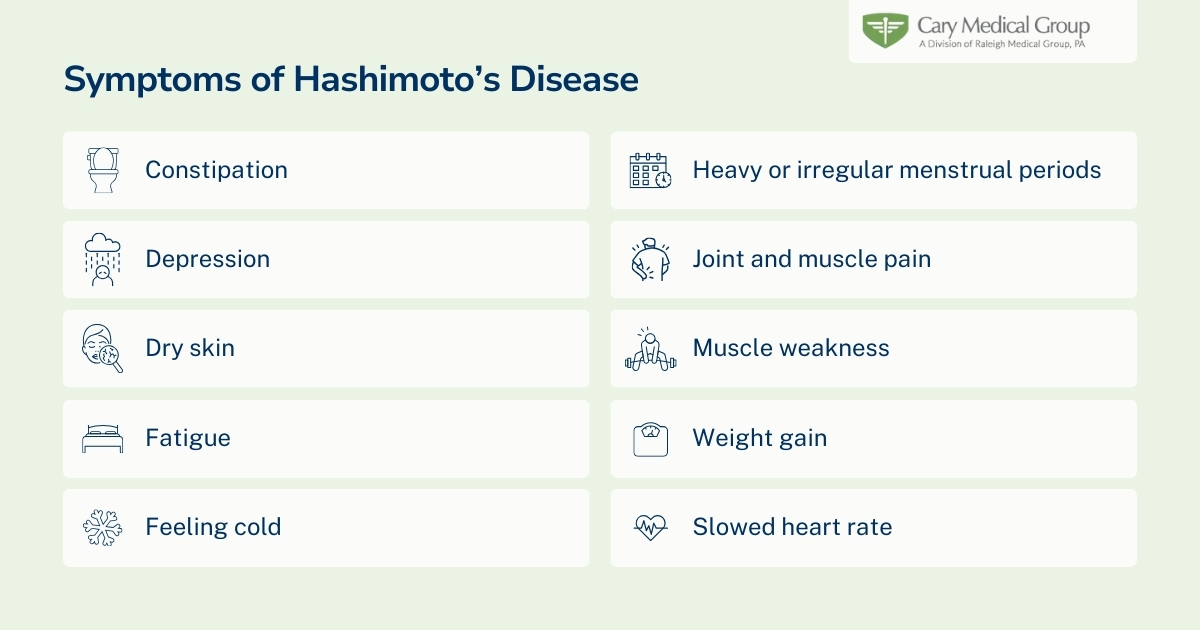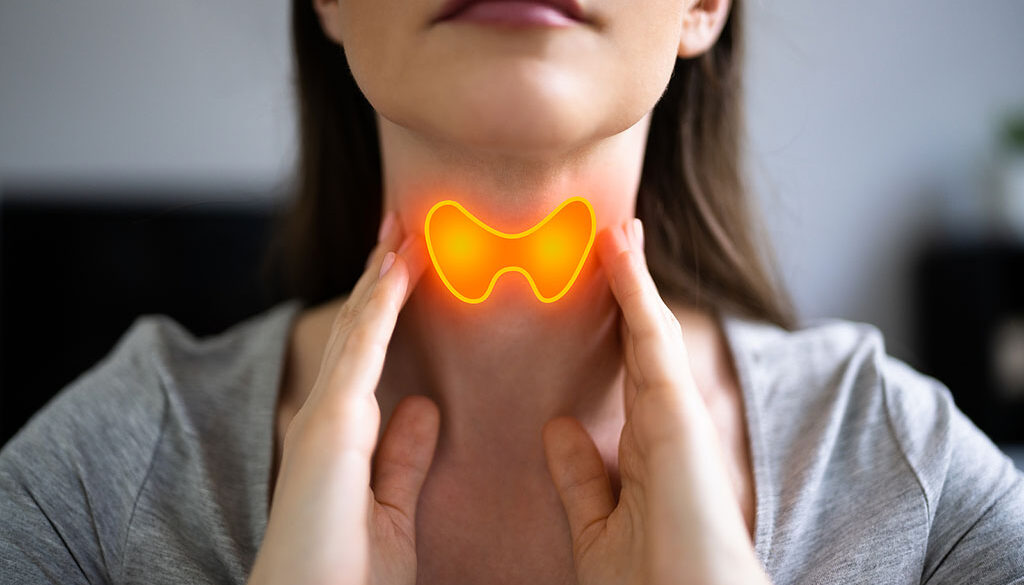We Explain the Telltale Signs of Graves’ Disease vs Hashimoto’s Disease
Graves’ disease and Hashimoto’s disease are two common autoimmune conditions that affect the thyroid, a small gland located in your throat at the base of your neck. Both disorders can have a big impact on your health, so let’s take a look at Graves’ disease vs Hashimoto’s disease and examine their similarities, differences and treatment options.
We know that when your thyroid isn’t functioning at an optimal level, it can affect several different systems throughout your body. Likewise, autoimmune diseases can cause problems that make it difficult to function in everyday life. Timely treatment is essential, and as internal medicine physicians in Cary, we’re dedicated to providing expert care by board-certified physicians. We invite you to schedule an appointment if you have any health concerns.
Graves’ Disease vs Hashimoto’s Disease: What’s the Difference?
The thyroid gland is part of the endocrine system, which regulates your body’s metabolism and produces hormones that tell your cells how much energy to use. In both Graves’ disease and Hashimoto’s disease, the production of thyroid hormone has become dysregulated.
Graves’ Disease
Graves’ disease is the most common cause of hyperthyroidism or production of too much thyroid hormone. This autoimmune disorder is most often seen in women and those under 40.
Symptoms of Graves’ disease may include:
- Bulging eyes, known as Graves’ ophthalmopathy
- Thick red or scaly skin on the top of feet or shins, known as Graves’ dermopathy.
- Anxiety
- Diarrhea
- Fatigue
- Insomnia or difficulty sleeping
- Menstrual cycle changes
- Mood swings
- Rapid or irregular heartbeat
- Sweating and heat sensitivity
- Unintentional weight loss
Hashimoto’s Disease
Hashimoto’s disease is the most common cause of hypothyroidism or production of too little thyroid hormone. This disorder mostly affects women in middle age, but it can happen to anyone of any age.
You’re more likely to develop Hashimoto’s if you have other autoimmune conditions like lupus or rheumatoid arthritis, you have family members with autoimmune diseases, or you’ve been exposed to high levels of radiation.
Symptoms of Hashimoto’s disease may include:

What is Hypothyroidism?
Hypothyroidism, also known as underactive thyroid, is an autoimmune condition that occurs when the thyroid doesn’t produce enough thyroid hormone. This can cause bodily functions to slow down, resulting in a slowed heart rate, and other symptoms as highlighted above.
What is Hyperthyroidism?
Hyperthyroidism, also known as overactive thyroid, is an autoimmune condition that occurs when the thyroid produces too much thyroid hormone. This can cause your bodily functions to speed up, resulting in rapid or irregular heartbeat, nervousness, and other symptoms as outlined above.
How are Graves’ and Hashimoto’s Disease Treated?
First, your doctor may take your medical history and order an ultrasound to evaluate your thyroid gland. Other tests and exams may also be performed by our internal medicine specialists to diagnose your condition.
Both Graves’ and Hashimoto’s disease can be managed; treatment depends on which thyroid disorder you have.
Hashimoto’s disease or hypothyroidism can be treated with a thyroid hormone medication that aims to restore your hormone levels to normal levels.
Graves’ disease or hyperthyroidism can also be treated using oral medication. In some cases, radioactive iodine therapy (RAI), a safe and effective treatment in which RAI is consumed in pill or liquid form, may be used.
Think You May Have a Thyroid Disorder? Our Internal Medicine Physicians at Cary Medical Group Can Help
As internal medicine physicians, we have a comprehensive understanding of thyroid disorders and how they impact your health and well-being. Not all thyroid problems exhibit symptoms, especially early on, so it’s important to schedule a thyroid exam as part of your routine physical.
We’ve treated many patients with thyroid disease, and depending on your condition, treatment can be simple and effective. For complex and/or complicated cases, we can also work with an endocrinologist to maximize your treatment benefits. Schedule an appointment with one of our experienced, board-certified internal medicine physicians today.
The content within this article and others on this website is only for educational purposes and should not be considered as medical advice. For any questions or concerns, please consult with your healthcare provider.
========
Source:
ThyroidCancer.com, “Graves’ Disease vs. Hashimoto’s Disease: Top 4 Things to Know,” https://www.thyroidcancer.com/blog/graves-disease-vs-hashimoto-s-disease-top-4-things-to-know


